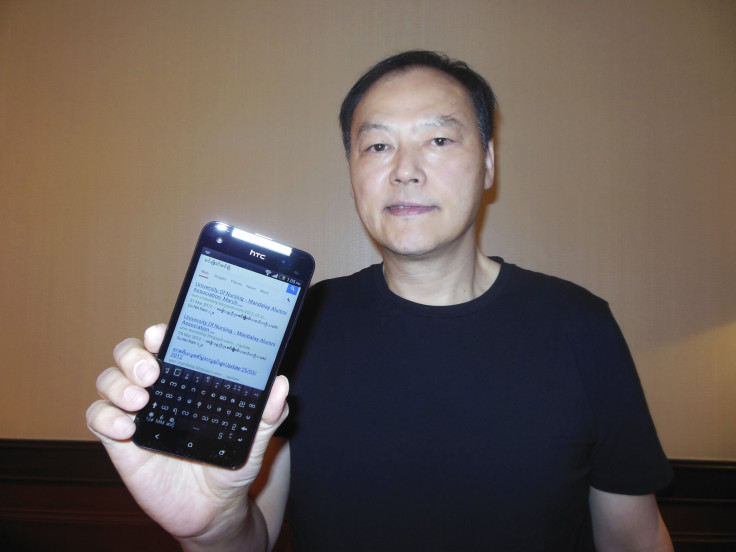HTC Expands Into Myanmar's Fledgling Telecom Market With New Phones

Taiwanese electronics giant HTC Corp (TPE:2498) is showing its excitement for Myanmar’s fledgling telecom market by launching new phones and reminding everyone its CEO was born in the Southeast Asian nation. The frontier market would be valuable for the company as HTC's global market share has been falling fast this year due to competition from Apple Inc. (Nasdaq:AAPL) and Samsung Electronics Co. Ltd. (KRX:005935).
Founded in 1997, HTC makes smartphones and tablets. Co-founder and now CEO Peter Chou was born in 1954 in Mandalay, a major Burmese city where his father had a business trading in jade. In January, HTC launched a smartphone that can read the Burmese script, and on Wednesday the company launched the HTC Desire 600c dual-SIM phone in Myanmar, according to the Irrawaddy, a Burmese news outlet.
“Burma’s telecom sector will grow relatively fast next year,” said Richard See, the company’s head of marketing in Myanmar, at the Wednesday launch. “We can see big potential next year because now there are very limited SIM cards here. We can possibly get a bigger market share next year.”
The fact that Myanmar is their CEO’s birthplace is one of the key factors in the company’s expansion into the young Burmese market, See added.
HTC is excited by the potential of the young consumer base in Myanmar – two-thirds of Myanmar’s smartphone users are the young people, a segment that is key to driving early and quick adoption in the nation.
Aside from the launches, HTC has set up two service centers and three sales centers in Yangon, Myanmar’s commercial center, and Mandalay, and is looking to open more stores. See said the company is not sure what its current market share is, but has a good idea of where its products fit in the telecom sector in Myanmar.
“We can say we are playing in the mid- and higher-level of the market here, because our devices cost between US$150 and $850,” See said, according to the Irrawaddy.
HTC’s major competitors in Myanmar will be Samsung, LG and Sony, See said, while Apple’s iPhone is not expected to make waves in the country where Android-phones are more popular.
Myanmar granted two telecom operating licenses to Norwegian company Telenor and Qatari firm Ooredoo in June. Previously, two state and military-backed companies had complete command of the very small telecom sector in the nation – less than 10 percent of the near 60 million Burmese citizens had a cell phone. The two operators have promised cheap SIM cards and widespread service in the coming years, making Myanmar a frontier market for manufacturers like HTC.
Gaining a piece of the Burmese market will be meaningful for HTC, which posted a loss in the last quarter. The company’s stock has slumped this year as its share in the global smartphone market dropped by more than half in the second quarter, the South China Morning Post reported on Tuesday. At its peak, the company was valued at about $37 billion, but is now only worth about $3.7 billion, owing in part to fierce competitive pressure from Apple and Samsung at the high end, and mainland brands like Xiaomi on the more economic models.
While HTC’s chairman Cher Wang is optimistic about the company’s future, saying at the APEC Summit on Saturday that HTC has the best technology and the best product, analysts are not as hopeful.
"We don't see a turnaround in the near future," said Richard Ko, an analyst at KGI Securities, according to the South China Morning Post. "Its products aren't good enough to compete, and those in the pipeline aren't going to rescue the business either."
© Copyright IBTimes 2024. All rights reserved.











